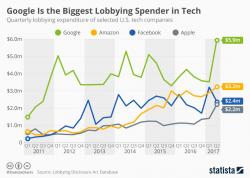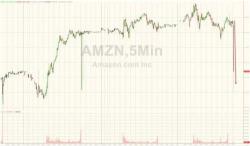Google Is The Biggest Lobbying Spender In Tech

The fact that many major tech companies are headquartered in Silicon Valley doesn’t mean they don’t have a voice in Washington as well. As Statista's Feliz Richer notes, according to documents filed in accordance with the Lobbying Disclosure Act, companies such as Google, Facebook and Amazon spend millions every year trying to legally influence D.C. lawmakers.



